Offshore teams is something I’ve been doing for many years. I went fully remote in 2010 and never looked back. Today, I have a distributed team across six countries and four continents. My previous agency had physical offices, and pretty much everyone had to work from the office. I’m never going back to that. Thankfully, when I sold my first company in 2010, I was able to start over with a blank slate, and boy, did I make some changes!
My guest today, John Jonas, is one of the biggest fans of remote Filipino teams that you’re going to find. John is the founder of OnlineJobs.ph, the largest website — bar none — for finding Filipino virtual workers, with over 2,000,000 Filipino resumes and over 500,000 employers from around the world using it. John works about 17 hours per week, choosing to spend his time with his family rather than working. This is made possible by having an almost completely Philippines-based team, and he lives in Utah and rarely travels on business trips. That is some seriously impressive “lifestyle design” — a term popularized by Tim Ferriss in his groundbreaking book The 4-Hour Workweek. By the way, Tim was a past guest, and that episode is a classic I highly recommend you listen to after this one.
If you want to learn how to delegate more of your workload, build a remote team, and scale your business, this is the episode for you! On with the show!
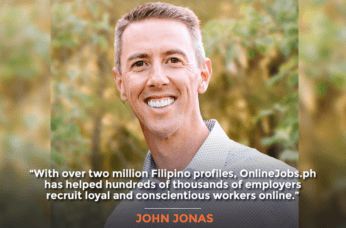
In This Episode
- [01:11] Stephan introduces John Jonas, founder of OnlineJobs.ph. They initially talked about the convenience of building a team in the Philippines.
- [02:26] John shares his most liberating experience in life and how he came about hiring someone in the Philippines. He explains why the world’s outsourcing switched from India to the Philippines.
- [09:40] John shares the story behind OnlineJobs.ph, and how the site evolved.
- [14:09] John explains the purpose of ID verification on OnlineJbs.ph site. He also discusses how apply points – a new feature of the job site – works.
- [22:18] What are the differences between Fiverr and OnlineJobs.ph?
- [33:45] What communities or camaraderie is out there for Western companies having a largely Filipino team?
- [36:06] John emphasizes the number one benefit employers should prioritize when hiring Filipinos.
- [39:24] Stephan shares his strategy for making the job search easier using the OnlineJobs.ph platform for finding experts. John also added important notes for hiring the perfect person for your team.
- [46:13] What are the differences between hiring Virtual Assistants vs. Online Filipino Specialists?
John, it’s so great to have you on the show.
Hey, thanks for having me. It’s good to be here.
I would love to hear how you ended up focusing on the Philippines and creating this amazing resource, OnlineJobs.ph that I and my team uses. We’ve been using it for many, many years now. How did this all come about?
I graduated from college in 2004 from Brigham Young University, and I had a job for eight months out of college. My only goal during that time was to quit. After getting a job, I just found out quickly that I’m a terrible employee. I’m not employable.
I was stealing my employer’s time. The incentive structure didn’t work for me. If I did good work, I got paid. If I did a bad job, I got paid. It didn’t really matter. I learned it’s not good for me. It took me eight months to start making money online and quit the job.
I was working 9–5, and I quit to be my boss to work 24/7. I hired people locally. The first thing they do is quit because they’re like, “Oh, you’re making money online? This is how you’re doing it?” I can do that on my own. I did that four times. I hired people locally, and they quit.
They’re good people, but the cultural differences are hard. That’s why people think outsourcing is such a headache. Historically, the US and most of the world outsource to India, and it’s just really hard.
Then I found Elance, which today is Upwork. Elance and oDesk merged years ago. I hired this guy from Elance to write 50 articles for me, which was super effective then. He writes and sends his articles to me, and this giant burden just fell on me.
I was so excited to get the articles back, and then I realized something has to be done with those. They’re written, but they’re just in a text file. I had to do everything else with it. I hated doing all of it.
I only used one of those 50 because it was too much work. I’d given up. A couple of months later, I talked with the owner of backcountry.com.
He said, “When you start outsourcing some of this stuff, make sure you go to the Philippines with it. In India, when you tell them something, and they say yes, that means yes, I heard something come out of your mouth. It doesn’t mean yes, I understood what you said.”
He gave me a reference where I could hire someone full-time in the Philippines. It gave me hope that there was something different than what I had experienced. I hired this guy full-time and could not keep someone busy. I didn’t have enough work for them. I didn’t know if they could do good work. I didn’t know if I could afford it. This was through an agency, which was about $750 a month at the time. I didn’t think they paid the worker I hired $250 a month, but that’s how it was.
It was the most liberating experience in my life. This dude’s full-time job was to do anything I asked him to do. So if I was willing to teach him how to do that thing, it would get done the way I wanted it to get done. After a couple of months of it, I realized, it was almost like there were two of me, and it was amazing.
The Philippine culture is different; it’s just different from anywhere else I’ve experienced in the world.
Why do I only focus on the Philippines? Because it’s different. It’s just different from anywhere else I’ve experienced in the world. The Philippine culture is different.
I can relate to your experience outsourcing to India. I did not understand the cultural differences. I did not understand that a responsive yes is equivalent to I heard something come out of your mouth. I was disappointed and frustrated. That’s not to say that there aren’t great workers there. I did not understand how to work with folks in that country and that culture.
Do you find that you come across people who have great success outsourcing to India? Is it workable, or do you find that everybody you know switches to the Philippines from wherever they were outsourcing to, and they’re much happier because of it?
We’ve had half a million employers come through Online Jobs and are just actively hiring. Every once in a while, I get someone that says, “Oh, I have a team in India, and we’re really happy with them.” I don’t know how, but people are making it work.
I run a website for the Philippines, so I see people switching to the Philippines every day. I’ve seen that every day since 2005-2007. And I’ve watched the world’s outsourcing switch there.
One time, this was probably in 2010, I had a problem with an Amazon order. So I called Amazon, and I got someone from India. I couldn’t understand them, and they couldn’t understand me, so I hung up. As you said, they’re good people, and there are good workers there, but this didn’t work. I called back immediately. This time I got routed to the Philippines. It was like Amazon was testing who solved the problem. The person in the Philippines solved the problem instantly. It was really quick. It was really great.
You don’t get call centers in India anymore. If you get someone overseas, they’re in the Philippines now across the board. T-Mobile, Comcast, or whoever has a call center, if you get someone overseas, they’re very, very likely in the Philippines. Most of the world’s outsourcing has switched, but not everybody.
What happened to push you to start the OnlineJobs.ph website?
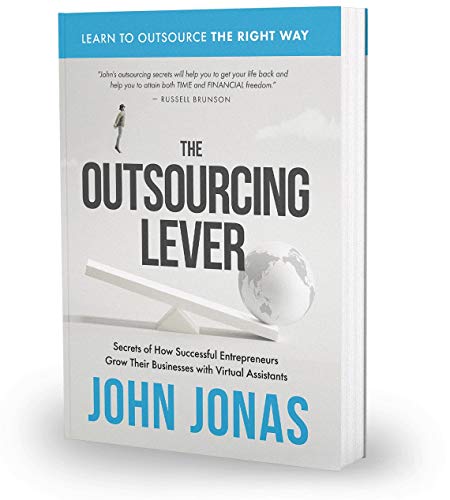
That reference to where I can hire someone from the owner of backcountry.com was through an agency. When I went to the agency, they said, “Do you want a webmaster or a programmer?” I was like, “I want a content writer.” They said, “Do you want a webmaster or a programmer?” I was like, “Okay, I’ll take a webmaster.”
A couple of days later, they came and said, “Here’s your webmaster.” What they had done was they had pulled a guy off the streets who spoke pretty good English, gave him a tiny bit of training, and said, “Oh, yeah, you’re now a webmaster.” The term doesn’t even make sense anymore in today’s world.
I just had him write content for me and do other stuff that was not webmaster-related. I went back to them over and over again for the next few years. That was 2005, the first person I hired, and by the way, he still works for me today. He wasn’t very good. He didn’t have any skills. But what he was was loyal, honest, hardworking, willing to figure things out, and just really, really great.
After a couple of years, I was frustrated. I want a talented person. Unfortunately, the agency’s incentive structure is to vet you as an employer.
I’ve seen this over the years. Most of the problems between a worker and an employer when it doesn’t work out, it’s the employer’s fault. It’s not the worker, which is the complete opposite of what most people think. Most employers think, “Oh, that worker sucks.” From the agency’s perspective and my perspective and what I’ve seen, that’s not correct.
Any agency, their incentive is to give you someone. They spend as little time as possible finding someone to provide you with and see if you make it work out. They kept doing that to me. I was like, “Dude, I want to recruit someone who is good at whatever it was, and that didn’t exist.”
Finally, one day, I was like, “I think I can build this website a simple job board,” like what monster.com was at the time and what indeed.com is today. So I went back to the agency and said, “Hey, I want a programmer.” They found me a programmer, and we started building OnlineJobs.ph.
The outstanding work ethic and remarkable loyalty of Filipinos are the primary reasons they stand at the forefront of the outsourcing industry. Share on XIn 2009, we launched it because I thought I could get a couple of hundred profiles into this thing to recruit someone for myself. And then other people will probably want to use it. We had a couple of hundred profiles in the first month because the people in the Philippines just responded to them instantly. They’re just so hungry for jobs because the economy of the Philippines, which is so much better today than it was, was just so low.
We ended up with a couple of hundred profiles. A couple of months in, we get hundreds of profiles every month, and then employers start using it. It just takes off to where, as you said, now we have over two million Filipino profiles. We’ve had hundreds of thousands of employers who use it.
That’s the story behind OnlineJobs.ph. I created it to solve my problem of wanting to recruit someone my way, not some dumb agency, and it worked well.
I love the site. I love how you thought through so many details around screening and qualifying candidates, things like their IQ score, background check, making sure that they have a valid ID and these sorts of things. My team or I don’t have to do as much vetting. It’s very, very powerful. How did those innovations come about? Did you think about those from the beginning, or did those evolve?
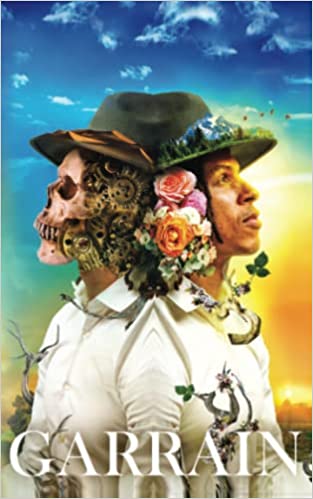
Those are evolutions. Initially, I didn’t think about anything other than I wanted a couple of hundred profiles into this thing to see if I could recruit someone. I’m not super visionary. Those things were just out of necessity for me. I have a team of about 40 people in the Philippines that work just for me. I built that team one at a time.
As I was recruiting and looking at things and profiles, I would figure something out like, “Oh, hey, I recognize this profile is a problem,” or “This profile is really good and legitimate.” That’s where ID proof came from. I could tell based on data in the system. I can tell if you are who you say you are just based on seeing your profile.
We built an algorithm to tell employers, “Oh, you are who you say you are. This worker is who they say they are because I can tell, or are their ID verification came about as part of that process.” There’s been a lot of things like, “Oh, man, there’s this problem where we get workers that come in, they’re completely unqualified for any job, but we get 60,000 workers every month. How do we let an employer know if someone is a better candidate for their job than someone else?”
That’s how we create an application point. It’s a recent addition, where it’s almost like a currency they get, but it’s limited. When you apply for a job, you use more apply points if you feel like you’re more qualified, or you use less apply points if you feel like you’re less qualified, which is great for employers.
Someone just told me, “I had 15 applicants, and one of them used 12 apply points. He was super well qualified, the rest of them used one apply point, and they all sucked.” That’s exactly why we created it. The rest of those things you’re talking about were built out of necessity for me and feedback from other employers. That’s how we make this a better experience.
How did you come up with this? Did somebody recommend it to you?
It’s similar to Upwork’s Connects. We looked at Connects for years and didn’t love it. I didn’t love what they had done, so we brainstormed how to solve the problem. We created some points that workers can use however they want, and it lets them stand out. It lets them say, “Hey, I’m a good candidate for this job,” or it enables them to spam job posts that tell an employer, “Hey, I’m just spamming job posts.”

They self-select. It was a collaboration of people in the Philippines on my team, me and my business partner. We discussed it for a couple of months.
You mentioned you have a business partner. Is that somebody you had from the beginning? Did this person come on later as an investor, a COO, or something?
It’s an interesting story. He and I were in college together. We would do our programming assignments together (I graduated in computer science). We’re good friends. After college, I started doing stuff independently while I had that job. He went off and got a master’s degree in image processing.
I went to him one day and said, “Hey, can you help me break this CAPTCHA because I want to gather all this data from Microsoft?” And he broke the CAPTCHA, which is why CAPTCHAs have evolved so much over the years and why now you have to select all these dumb images. It’s so obnoxious, but that’s from people like him.
I fail those CAPTCHA tests all the time.
You can find any specialization in the Philippines. Whether or not it works for you is different.
Because they’re intended to be hard, that was the first thing we worked on together, and then we started a couple of different things together as 50/50 partners before we started OnlineJobs.ph.
I had been reading Rocket Fuel about the CEO and COO relationship, the visionary and the integrator. It just turned out that he and I were really good fits for those two roles, naturally. I get to create, build, solve problems, and then he takes it over after and does a great job of it.
It’s funny that there are no coincidences. I had Lloyd Thompson on the podcast. One of the big topics of the conversation was the visionary, the integrator relationship, and the Rocket Fuel book.
I only got halfway through because I was like, “Oh, yeah, this is talking exactly about him and about me.” With him and I, we don’t have the butting heads that many people do. It just works well.
That’s awesome. Do you have any other team members in the States, or is the team almost completely in the Philippines?
Over the years, I’ve had a few different people in the US. She has been a write-whatever-I-want-to-write person. I have people in the Philippines that write my blog, newsletter, social media, and other stuff. But this girl has written sales copy, she’s written products, and she’s written other things. She’s not working for me right now. She’s now a mom of five kids.
I’ve had people doing Google and Facebook ads in the US, and I’ve had people doing those things in the Philippines, too. Right now, I have both.I have a Google person in US and Australia and a Facebook person in the US. I have another ad person in the Philippines. They’re just super similar.
Are you able to bring on specialized experts in the Philippines, somebody who’s good at SEO? My bailiwick is I’m the co-author of The Art of SEO. Do you find that for certain marketing activities, you have to go to the US for that, or can you find pretty much every specialization in the Philippines?

You can find any specialization in the Philippines. Whether or not it works for you is different. I had a good Filipino copywriter. He got sick and stopped working. It was so frustrating. I kept stringing him along, trying to get into work because he was so good.
I just struggled to find another one like him. Then I got a reference from someone to a good US copywriter, so I’ve been using him. I always try to practice what I preach. I don’t love telling people to go to the Philippines for talented people and then hiring someone in the US. That’s why I don’t do it.
It makes sense.
There are very few things. What I do find often is employers who hear me talk about people in the Philippines think that they’re going to find a magical person that’s going to build them a funnel, create the email opt-in page, write the product that’s going to go behind it, make it look great, attach it to their email autoresponder, and do the marketing and SEO for it, all in one person. Sorry, that’s not going to happen.
That’s hard to find in the US.
That person doesn’t exist. So that is one thing I see where this will not work for you if that’s what you’re looking for. You’ll have to have a team of people to build that thing. Or those aren’t employees like how I handle the people in the Philippines. These are just per project, people setting something up for you that you can find on OnlineJobs.ph, you can find them on Upwork, Fiverr, or whatever.
What’s your opinion about Fiverr? Is that a useful resource or marketplace for our listeners? Or would you recommend going direct and using a site like yours, like Online Jobs?
I haven’t used Fiverr in a lot of years. I looked at it the other day, and it has evolved far away from $5 to do this thing. I can get everything done from OnlineJobs.ph.
That doesn’t mean Fiverr is not a good place to hire people. I can’t say it’s not. There are a couple of differences. They focus on very temporary short-term work, and we focus on more team members. With Fiverr, you will get huge markups. I don’t know what it is right now, but it’s been a 40% markup in the past.
We don’t mark people’s salaries up.
We don’t mark people’s salaries up. If you’re doing a short-term project, then the 40% markup is acceptable. If you’re working with someone long-term, it’s not. At Fiverr and Upwork, you’ll find reviews of people based on what other employers have said. You’ll find reviews of workers to see whether this person is good. It is the perfect situation for finding someone.
The issue is reviewed mean turnover. That’s what it means from the past employer. Nobody leaves a review if they’re working with someone because it’s not like, “Oh, hey, this person is great. They work for me. Come hire them.” That’s like saying, “Here’s my best person. Hire them away from me.”
Exactly. That’s such a great point.
If you want a very short-term thing because that’s how it’s built, you know this person will not work for you, not for a long time, then that’s a good way to go. But, if you’re looking for a team member or help, we focus on the longer-term thing.
It makes sense. As you’re talking about that, I thought about your Filipino copywriter. If you could snatch that person back up, I bet you would.
For sure. When I hired him, he only wanted to work on a contract basis; then, I kept him busy full-time, and he got sick. He just told me, “Hey, I can’t work for you anymore.” I was like, “Okay, well, I’ll wait,” because he was really good.
OnlineJobs.ph focuses on long-term and if you’re looking for a team member.
He’s like, “You should find someone else.” “No, I’ll wait.” I sent him a message just a couple of days ago. I haven’t heard back yet.
Hopefully, he’s okay.
Yeah, I know. After a while, he stopped responding, which was sad.
Good people are like diamonds. They’re like gold nuggets. You don’t want to let anyone snatch them away. You want to treat them with love and kindness and ensure they’re happy and fulfilled working for you long-term.
One of my Filipino team has been with me since 2017. That’s a long time. I couldn’t imagine not having her as our manager for the Filipino team. We have five other team members there in the Philippines.
She recently moved just within the last 12 months to Texas. She still manages the team remotely from where she’s now. We have a US team, and we have folks in Europe and elsewhere as well. I love working with Filipinos. Their work ethic and their loyalty are just outstanding.
They’re humble, kind, and unassuming. They pay attention to what you’re saying. It’s such a joy to work with them. One of the resources we always go to when looking for another team member in the Philippines is OnlineJobs.ph. It’s a great resource.
That’s good. The culture is interesting, especially the loyalty thing that’s missing in the rest of the world. As I said, the first person I hired still works for me today. One day, he told me, I always get job offers from other people, but I’m not going somewhere. People have worked for me since 2007, 2008, 2010, and 2011.
It does make a difference, especially in a small business, where you can teach something to someone, and you don’t have to create this whole super over-the-top standard operating procedure because that person will be there in two years. Creating standard operating procedures isn’t good. I’m never good at it, and I don’t like it. The Philippines has made that a lot easier because they’re not leaving as long as you treat them well, which you said. That is a key piece of it. You have to treat them well.
It makes a difference when you can teach something to someone, and you don’t have to create this super over-the-top standard operating procedure because that person will be there in two years.
Also, building a community with them so that they don’t feel like a lone wolf. We found different team-building experiences that my Filipino manager has put together around holidays, staff members’ birthdays, and things like that. They may not always get together in person because they live in different cities in the Philippines, but occasionally, they get together in person.
People feel recognized, even if it’s just over Zoom to celebrate somebody’s birthday. They feel cared for. They’ll get a little gift card or something when they go above and beyond. I have nothing to do with it. I don’t even know that my manager is doing this.
She told me one day, “Yeah, I’ve been doing that.” I’m like, “You paid for that with your own money?” She’s like, “Yeah.” “Okay, let me give you a budget so you can do this properly. I want to reimburse you for those gift cards you gave the team and paid for out of your pocket because that should be a company expense. That was proactive of you, and I’m grateful you did that. Now you have a budget.”
That’s super cool.
Awesome. Do you travel to the Philippines, ever?
I’ve been there once. In 2010, I took my family on vacation. We sat on a beach for five weeks. I met the team I had at the time, which was six. I haven’t been there since 2010. It’s the one place in the world where I feel a draw to go back to, but also, I don’t like being away from my family.
I have five kids. They’re aged 20 to age 9. They’re in a hard spot to go to the Philippines for a month now, so I haven’t been back. Most people assume that I travel there all the time—I don’t—which is great for people considering hiring in the Philippines. You don’t have to travel there. But I would like to, and I should see my team. and bring them all together again.
I heard this expression. It was Marshall Rosenberg, the founder of the Nonviolent Communication program. That was on video, I didn’t meet him in person. He’s passed now, but it’s such an apropos statement. “Stop shooting all over yourself.” Whatever you’re meant to do, you’re going to do. It’s already written. It’s already part of your life plan.
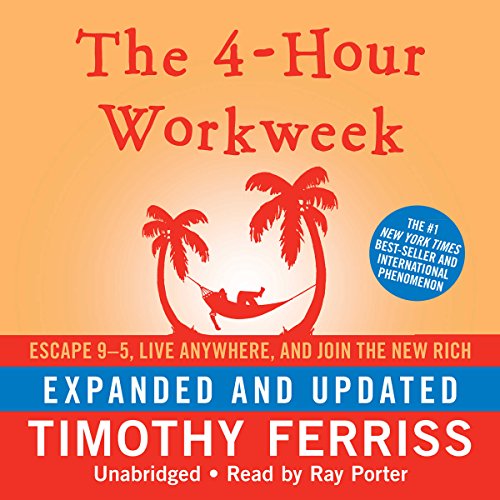
For me, I have two competing things, there’s good, and there’s better. The good is to meet my team in the Philippines. The better is to spend time with my wife and my kids. I have to make that choice. A better return on investment long-term is to spend time with the relationships that I’m close with.
Do you keep in touch with the founder of the Backcountry store?
It’s actually sad. He built this massive business, stepped aside as a CEO, and then passed away a couple of years ago. He was an avid backcountry skier. When I heard that he had died, I thought he probably died in an avalanche. But he just had some health issues.
Did you keep in touch with him over the years?
We communicated a couple of times, but not super well.
It’s funny how somebody who pops into your life gives you the message you need to hear at that moment, and then they disappear.
I interviewed not long ago, Garrain Jones. I have another podcast called Get Yourself Optimized. That’s not an SEO podcast. That one’s all personal development, spirituality, and that sort of stuff. He was sharing his story. He was living in his car. He was at the end of his rope. He was really in a bad place.
A homeless man knocked on his window. He was sleeping in the car and parked at a gas station. The homeless man wanted some money. He opened his car and said, “You have more money than I do.” The homeless man yells at him, “Change your mindset, change your life.” That was exactly what Garrain needed to hear because it looked dire.

He might have committed suicide, but he heard that message, which wasn’t random. That wasn’t just some bumper sticker or something. It was delivered by a homeless man at the exact right moment. I believe in synchronicities. I believe this stuff is divinely orchestrated.
For Garrain, that guy was an angel. Now he has a book titled Change Your Mindset, Change Your Life, and he’s a multi-millionaire. He’s super successful. He’s got an amazing life. That was the turning point for him, hearing that message. Your friend from the Backcountry store could have been your angel.
He totally changed my life.
Amazing. I’m curious to hear what communities or camaraderie are for US or Western companies with a largely Filipino team. Do they have masterminds that they’re part of? Do they have conferences that they attend, collaborate, share stories, and all that?
Nothing of the sort.
The Philippines has become the global hub for outsourcing, and is a great place to find outstanding employees. Share on XOne of my best friends is Greg Merrilees. He’s the founder of Studio 1 Design, which is a great design house in Australia. He’s based in Melbourne. Almost his entire team is in the Philippines. They’re incredible designers. They do such phenomenal work.
I had a hard time finding talented web designers in the US. I learned of Greg Merrilees and Studio 1 Design through a mastermind run by Taki Moore and his Black Belt program. I have learned so much from Greg.
For example, we improved our policy around holidays, paid time off, and that sort of thing. They’re all contractors because I won’t establish a Filipino business as an employer. So I’m working with them as contractors, but I want to treat them well.
There are different cultural things like the 13th-month pay. We don’t do that, but we have different policies that take good care of them, so we made some improvements.
I sent the new policy draft to Greg, who gave me feedback. It was really helpful. If I had a community of 10 CEOs or founders with Filipino teams, and they’re sharing best practices, lessons learned, and collaboration among us, that would be so valuable.
Communities are based around things that people are passionate about. Nobody’s passionate about outsourcing to the Philippines except for me.
I love it, and Greg.
You love it, but it’s not a passion of yours. You’re running a great business doing things that you love. This is a means to an end. Yes, you love the people that you hire. They become your family. They’re indispensable.
That’s one thing. Communities are built around things people are passionate about, and nobody’s passionate about this. Two, I’m not a super community–type person. I’m not in any mastermind. I don’t need that external group. I don’t see the vision of it. And then, number three, I try to cover and provide what you’re asking for. I try and give that to people.
Communities are based around things that people are passionate about. Nobody’s passionate about outsourcing to the Philippines except for me.
Three days a week, I write a newsletter. One of the people on my team or I write a newsletter that goes out to 100,000 people. We talk about everything you want to know as an employer of people in the Philippines. How do we do benefits to people? If you’re not paying the 13th month, you should seriously consider adding that.
The 13th month is the number one benefit they want in the Philippines. So it’s a big deal to them. There’s no way that you can make them an employee, according to your government. In fact, the Philippine government will not let you make them an employee. As you said, they have to be an independent contractor for you unless you set up a shop in the Philippines.
These are things that I talk about. I try to educate people on and provide options, provide information, and just let people know because I don’t want to be a part of a group. I assume other people don’t want to be a part of a group for something they’re not passionate about. They want the information. That’s why I’m unaware of any mastermind groups, communities, or conferences for hiring in the Philippines.
There is a conference that the Time Doctor founder put on. Do you know about the Time Doctor? Running Remote, I think, is the name of the event.
Yeah, but it’s not Philippine-specific.
It’s not. It’s offshore teams. That’s the closest thing I can think of. Here’s something I’m in the midst of right now. We are using OnlineJobs.ph as part of the solution. We haven’t gotten the solution yet, but we’re in the process.
I’m looking for a YouTube expert. One of the secrets to finding a great person on your platform is using the right search keywords. If I put ‘YouTube,’ I’ll get a lot of noise. But if I put in ‘YouTuber,’ which is the term for somebody good at YouTube, they’re very active on the platform, they know the ins and outs of Creator Studio, and so forth, that’s an insider name for a person who is on YouTube.
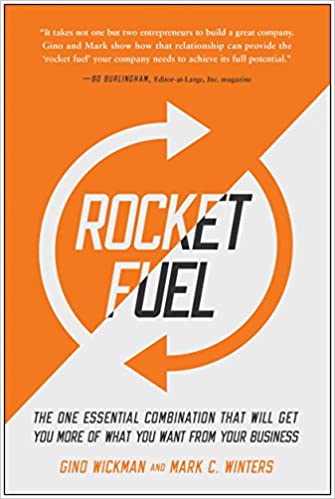
I find way fewer search results, but these are people who are more insiders. I want somebody who isn’t just familiar with video editing. I want somebody who understands what will be a needle mover with optimizing YouTube videos or just the channel generally, the difference between the video you feature for a non-subscribed YouTube user, and somebody who’s already a subscriber, the trailer versus the featured video. That’s hard to find.
I want somebody who’s already not so successful that they’re making a killing off of their YouTube channel through the revenue sharing from YouTube so that they need the work or want the income from me. I want somebody who’s gotten far enough along that they won’t just learn from ground zero from me. That’s what I’m looking for. I’d like to hear if you have any insights on what would make this process easier.
You make a really good point. Unfortunately, when they come to OnlineJobs.ph, many people just post a job. As soon as you start looking for something more specialized here, Online Jobs are like indeed.com, where you have two million people that have put their profiles up there, and then they’ve looked for a job and found a job. However, they’re not actively applying for jobs.
Just having a profile there doesn’t mean they’re willing to work. But if you post a job, the only people you’re going to find are people currently applying to jobs, which is great for most positions. But as soon as you’re looking for something specific specialty like YouTuber—I love that—you must be proactive about finding that person.
Yesterday, I had someone who said, “I’m looking for a senior controller, and I’m not finding it. I didn’t get any good applicants for my job post.” You’re looking for a specialist. If I search for a senior controller on OnlineJobs.ph, I get all kinds of really, really good results. Now, contact those people.
Here’s the next step of that. When you find these profiles, you’re like, “Oh, I want to hire that guy.” That’s the wrong way to do it because that guy may already have a job. This goes back to Filipinos being super loyal, and he will probably not respond to you. The correct way to do this is to go on and search the keyword that you have. As you said, “YouTuber” is more important.
When looking for a specialist, you must proactively find that person.
This guy told me, “I’m looking for a senior controller bookkeeper.” So I’m like, “Okay. So now you’re going to search senior controller bookkeeper, and you’re going to start playing with the keywords like, does Sr. bring up more results versus senior? Does that bring up more results? Where am I getting the better results?”
Here’s how I do this. First, I’ll look at 30 of them. Then, without clicking on any of them, I will see what results I get. What talent am I getting? Are these the people that I’m looking for? Okay, now I know that I have some talented people, some moderately talented people, and I can tell that just from their titles.
Now I’m going to click on ones with really good titles, and I will start contacting those people. I’m going to get them with the same message. Online Jobs will let you save a message as a template. I will contact them and say, “Hey, I am looking for whatever it is. Are you interested in a job? I’m looking for someone full-time.” That’s all I’m going to say.
I’m going to tell them the role and ask them, “Are you interested?” People often say, “I just want to hire the best.” That’s fine, but the best person is already employed, and you can’t employ them. So you need to hire the best available person who’s the best person you can find.
Finding the best, there’s always someone better. The amount of effort it takes to find the best isn’t worth it or isn’t in the cards. Instead, you’re looking to find the best available person, which means contacting 10–20 people who are specialized, who you found, and then start interviewing those who respond to you.
Yup, great advice. I was thinking about other keywords that have been effective on your platform. But, again, it’s really about getting super specialized. It’s not SEO. If I’m looking for somebody to do link outreach, it’s not even outreach; it’s Pitchbox, the platform we use.
Educate people and provide them with options and valuable information. You want investment from people who share and are passionate about your vision. Share on XIf I want somebody who will do WordPress work, and let’s say it’s updating content inside of Elementor, I need Elementor as the keyword, not WordPress, because everybody puts WordPress in their profile. Or, if it’s somebody familiar with SEO and WordPress, I’ll put Yoast as the keyword. Lumen5 if I want somebody who’s a short social media–type video person because that’s a great AI-based platform for creating these social videos. Or Descript, that’s another one, instead of just an audio editor or podcast editor, Descript.
Years ago, employers were like, “Oh, can I find a Descript person? We’re talking about hiring virtual assistants.” I was like, “Dude, I hate this word, virtual assistant. That’s not who you want to hire.”
I stopped calling them virtual assistants and started calling them OFS, Online Filipino Specialists. Not everybody’s looking for an OFS. Not everyone’s looking for a specialist, but many people are. I’m at the point in my business where I’m looking for a specialist, not a VA. I want to know if that’s someone good at what they do, that’s who I hire, and that’s who you want to hire. It’s super doable with Online Jobs.
I love it, OFS. I don’t like the term VA. Yeah, I don’t.
I stopped calling them virtual assistants and started calling them OFS, Online Filipino Specialists.
People keep coming to me and saying, “Oh, you should use VA.” I don’t want to use VA anymore. It’s not the right thing. My good PHP programmers or the react-native developer that I just hired is not a VA. He’s a specialist. He’s dang good at it.
That’s awesome. I saw in your bio that you work 17 hours per week, not per day, but per week, and that’s awesome. That’s not quite Tim Ferriss’ 4-Hour Workweek, but that’s a lot closer than 99% of us get to.
How did you pull that off? Think about how many COOs and integrators there are in the world working for the visionaries, and the visionary is still putting in 50–60 hours a week. So how did you get down to 17? What’s your secret other than outsourcing to the Philippines?
I have a couple of things. Number one, I say no to everything.
Thank you for saying yes to this podcast interview.
I’ll tell you then. The thing that moves the needle in my business is content creation. So I say yes to content creation. This is one of those. We’re creating content right now, so I say yes. But I have daily opportunities, like, “Oh, you could do this, you should do that.”
Are you familiar with the book by Derek Sivers? It’s called Hell Yeah Or No. If it’s not a hell yeah, it’s a no.
Yeah, I’ve seen that. Here’s what happened to me in 2007. My wife’s seven months pregnant with our third child. She had a doctor’s appointment and found out she had preeclampsia. “If you don’t go on strict bed rest for the next three to five weeks, you’re going to go into seizures, and you’re going to lose this baby,” the doctor said.
The thing that moves the needle in my business is content creation.
On the way home, I’m just thinking, “Oh, my gosh, my wife is on strict bed rest. We have two other kids. I’m not about to lose a baby over money. I have to figure out what to do.” I got home, I sent an email to two of these guys in the Philippines and my business partner, and said, “Here’s the situation, I can’t work. I have two other kids. Here’s what I need you guys to do.”
They had been with me for two years. I had spent a lot of time training them and bringing them up to speed, but I still had them doing menial work. I never considered that they could be thought workers or take things over.
I turned everything over to these two guys and my business partner. They took over everything in my business, and it was amazing. I was shocked. My wife had the baby three weeks later, and it’s a healthy, perfect little girl. She’s almost 16 now.
She struggled with postpartum depression. I spent three months doing nothing. I had thought, “Oh, this is going to be a disaster.” But as I followed it, I knew it wasn’t a disaster. Things were running just fine. These guys had taken over what I was doing in my business. They were doing a good job with it.
It wasn’t like they built this amazing business, but they maintained it. They did what was needed to maintain it. I was working the one-hour workweek, but there are only so many times a day that you can take your kids to the golf course. You can play only so much golf, and you get bored, so I started returning to work. But this time, I knew differently. I knew differently.
I knew that there was always work to be done. Who’s doing the work? Is it me, or is it someone else? Because now I figured it out. I stepped away. Everything I do will be based on whether I can get someone else to do this work. Because if it has to be me, I will say no. From then on, everything has been, “Is it me, or is it someone else?” And it’s always been someone else. That’s my key.

When I decide, one of the really big driving factors in my life has always been this quote, “No other success in life compensates for failure in the home.” For me, time is the number one thing for succeeding at home. It’s just time. Kids don’t give a crap about quality time. They want time.
I’m going to spend the time with my wife and my kids rather than with my work because work is always there. It’s always there. If I can hire someone else to do this, I will do it. That’s how I work 17 hours a week. Right now, it’s not even 17. We’ve had the biggest snow winter in history. I love to ski, so I ski four days a week.
That’s your full-time job.
It’s a full-time job right now. It’s been amazing. When I do work, I’m just very, very focused. I create content, and I respond to my team. I get them in the place where they need to be. I give them instructions, I create solutions, I think, but I don’t do anything.
You’ve written a book, right?
Yeah, The Outsourcing Lever. It covers the whole gamut of things, outsourcing to the Philippines, why and how I do what I do, how I work, the work week, how I manage the people, and how I find them.
Very cool. Did you use your team to help you go straight to that, edit that, and all that?
Yes, and to write the sales copy, to put up the page, to deal with the fulfillment side of it, and the whole thing, connecting it to the email autoresponder and writing the emails. So I’m involved in everything, but I don’t do it. I don’t do the work.
“No other success in life compensates for failure in the home.” – David O. McKay
Awesome. Congratulations, you have built an amazing life with God’s help. You’re making a big impact on a lot of people.
Thank you. It’s so fulfilling. People always ask me like, “Are you going to sell?” I’m like, “Why would I sell this?” Every day I hear employers say, “This changed my life.” You telling me this is amazing. I can’t imagine life without my team.
I hear daily from workers in the Philippines, “This changed my life, I got a job, and I can’t believe I got a job. I get to spend time with my kids instead of having to go overseas. It’s just so fulfilling. I’m not overworked, I’m not overwhelmed, and I’m not stressed out. It’s really good.”
Awesome. Thank you so much for joining me on the show and taking that valuable time away from your skiing and from your family to have this conversation with me today and for our listeners to get inspired by what you’ve been able to accomplish and create. Thank you.
Thank you.
All right. Listener, do something amazing and make a difference in the world. We’ll catch you in the next episode. I’m your host, Stephan Spencer, signing off.
Important Links
Connect with John Jonas
Apps and Tools
Books
Businesses/Organizations
People
Previous Marketing Speak Episodes
YouTube Videos
Your Checklist of Actions to Take










About John Jonas
 John has helped thousands of entrepreneurs succeed in their businesses by outsourcing differently. He created and runs OnlineJobs.ph, the largest website for finding Filipino virtual workers, with over 2,000,000 Filipino resumes and over 500,000 employers from around the world using it. He works about 17 hours per week, choosing to spend his time with his family rather than working.
John has helped thousands of entrepreneurs succeed in their businesses by outsourcing differently. He created and runs OnlineJobs.ph, the largest website for finding Filipino virtual workers, with over 2,000,000 Filipino resumes and over 500,000 employers from around the world using it. He works about 17 hours per week, choosing to spend his time with his family rather than working.







Leave a Reply